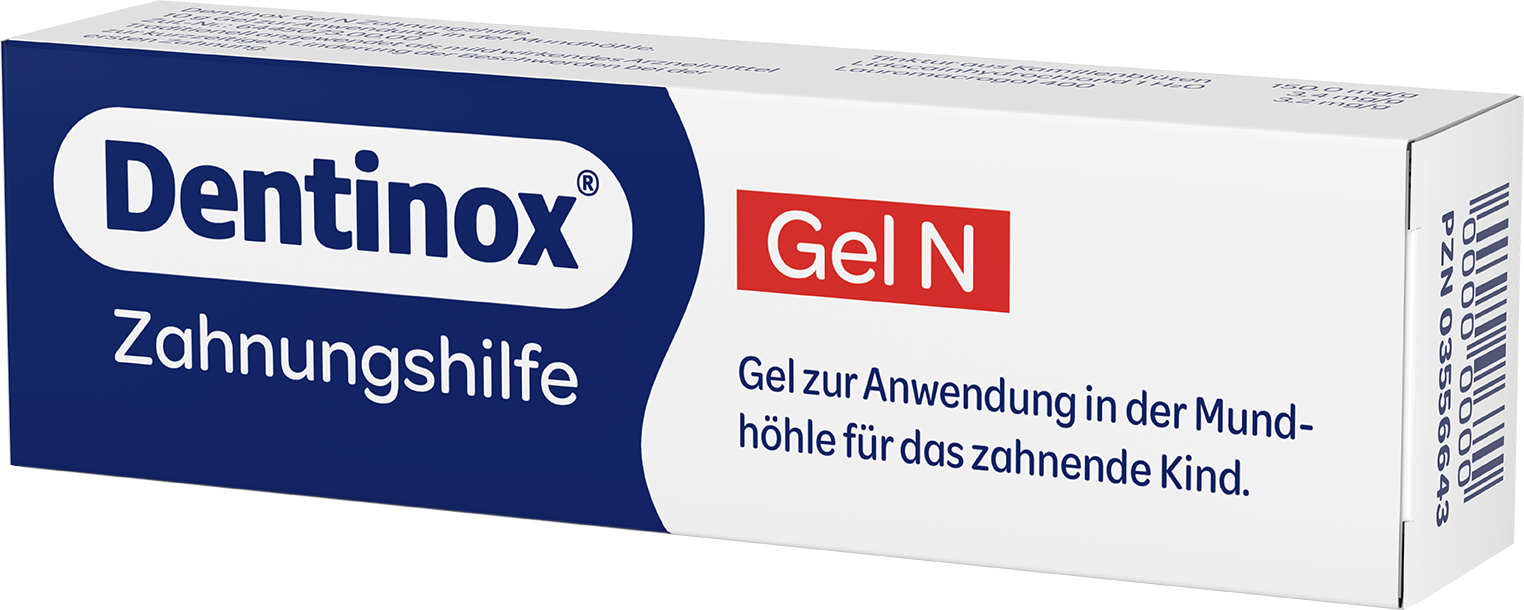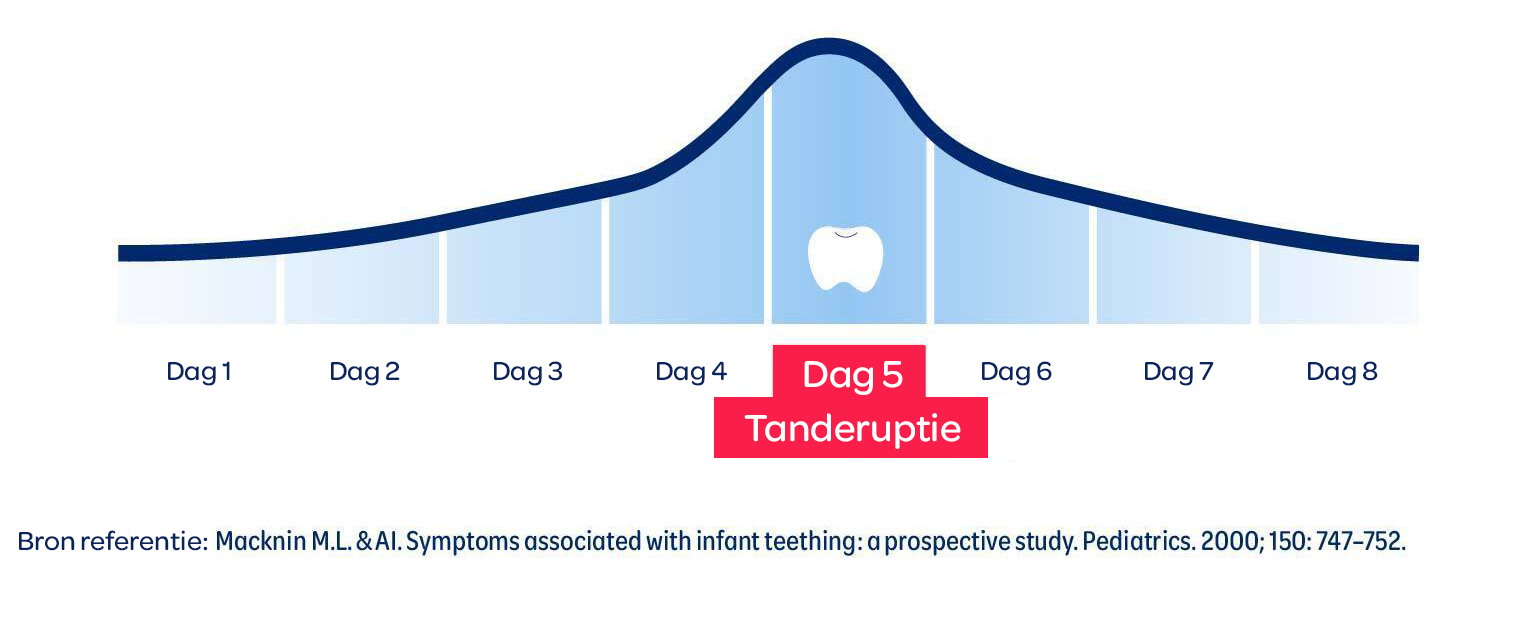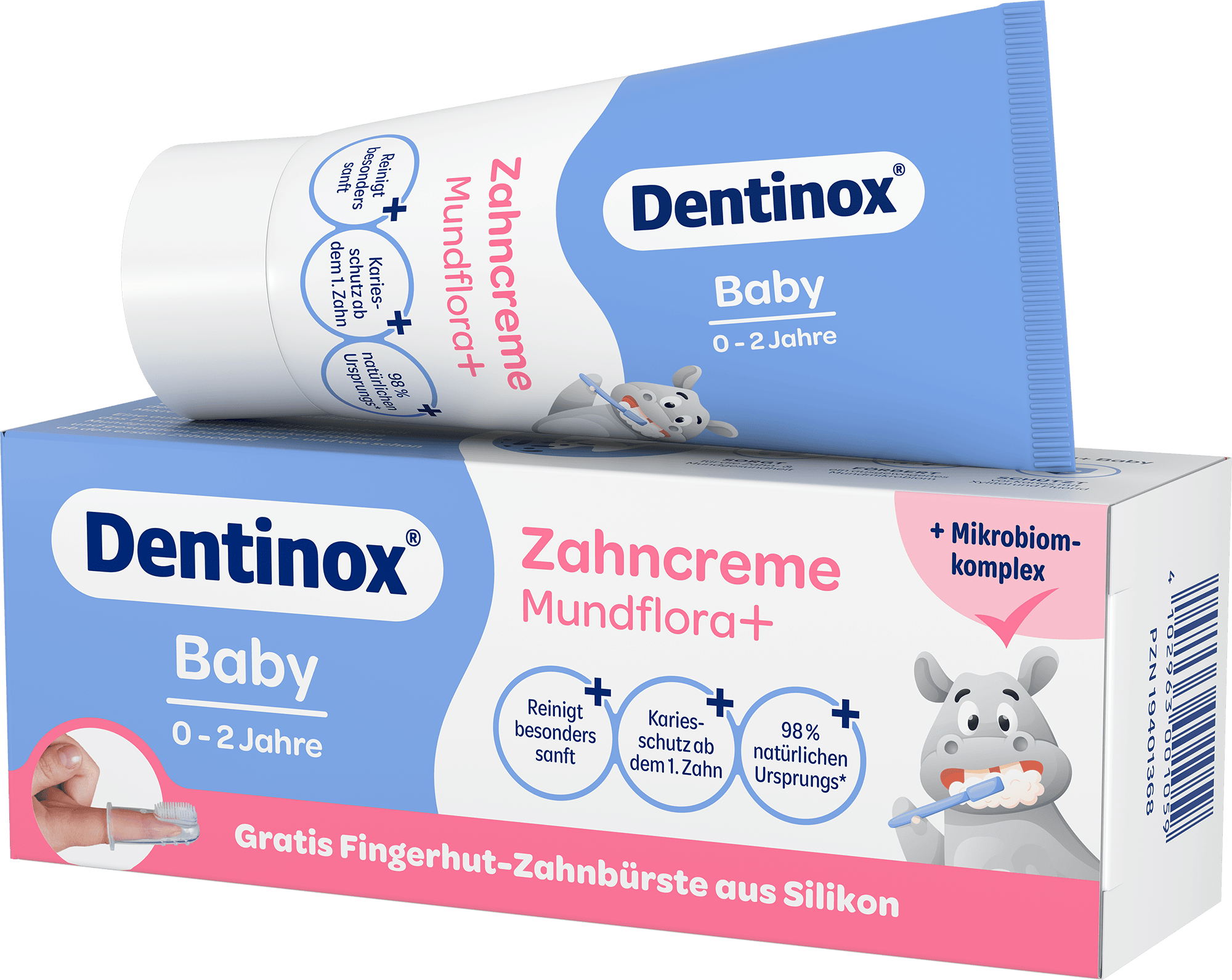Teething is an important milestone in your baby's development. But many parents wonder: When do babies start teething? The answer to this is not so simple, as every baby is unique. In this comprehensive guide, we look at all the important aspects of teething, from the first signs to common questions such as "When do babies start teething?" and "Which teeth come in when?".
When do babies start teething? The beginning of teething
Most babies start teething at around six months of age, but this can vary greatly. Some babies can show the first signs as early as three months, while others only start after their first birthday. Teething is a process that is usually completed by the age of three, when the child has all 20 milk teeth.
Early signs of teething
There are some typical signs that may indicate that your baby will soon be teething. These include:
- Increased drooling
- Reddened gums
- Your baby bites toys or their own fingers more often
- Restlessness and irritability, especially at night
- Slightly increased temperature
It is important to realise that these signs are not the same for every baby. While some babies suffer greatly from teething, others have hardly any discomfort.

Dentinox Gel care Gentle teething care | 
Dentinox Gel N Teething gel | |
|---|---|---|
| Effective ingredients |
|
|
|
| |
| Zum Produkt | Zum Produkt |
The order: Which teeth come when?
The order in which your baby's teeth erupt is usually quite predictable. It usually begins with the lower incisors (central incisors). Here is a rough timetable:
1. 6-10 months: Lower central incisors
2. 8-12 months: Upper central incisors
3. 9-13 months: Upper lateral incisors
4. 10-16 months: Lower lateral incisors
5. 13-19 months: First upper molars
6. 14-18 months: First lower molars
7. 16-22 months: Upper canines
8. 17-23 months: Lower canines
9. 23-31 months: Second lower molars
10. 25-33 months: Second upper molars
This schedule may vary from child to child, but it provides good orientation.
Phases of teething and the process of teeth coming through
Teething takes place in several phases, which are typically associated with different symptoms and developments. At the beginning of the process, from around the sixth month of life, the first symptoms appear when the teeth accumulate in the jaw and the gums swell. Tooth eruption takes an average of 8 days.*
In the first phase, known as "preparation", the teeth form in the jawbones and exert pressure on the gums, which can lead to irritation and increased salivation.
In the second phase, the "eruption", the gums become thinner and begin to stretch until the teeth finally break through. This is often the most painful phase, which can be accompanied by discomfort such as redness, swelling and occasional fever.
The third phase comprises the "subsequent stage", in which the teeth have fully come through the gums and are gradually settling into the correct position. At this stage, babies may continue to be slightly irritated, but symptoms will begin to subside as the gums heal and adjust. Teething is a natural and often challenging process, but it usually becomes easier over time once the first teeth are complete.
*Source: Macknin M.L. & Al. Symptoms associated with infant teething: a prospective study. Pediatrics. 2000 ; 105: 747–752.

Teething and diarrhoea: Is there a connection?
Many parents report that their babies have diarrhoea during teething. But is there really a connection between teething and diarrhoea? In fact, there is no scientific evidence that teething directly causes diarrhoea. Rather, the increased drooling and biting on objects could lead to bacteria entering the stomach, which in turn can irritate the gastrointestinal tract.
What are the typical symptoms of teething?
In addition to diarrhoea, other symptoms can also occur that can unsettle parents. Here are some common complaints that can be observed in connection with teething:
Fever during teething
A slightly elevated fever during teething can occur, but is rarely higher than 38°C. If the fever lasts longer or is higher, there could be another cause and a doctor should be consulted.
Sore bottom during teething
Diarrhoea can lead to a sore bottom during teething, as frequent contact with faeces can irritate the sensitive skin. It is important to take good care of your baby's skin to avoid redness and inflammation. Special wound protection creams such as Dentinox zinc ointment against nappy rash can be helpful here.
Tummy ache
Babies may occasionally have tummy ache during teething. This discomfort is often due to general discomfort and changes in digestion, not a direct result of the teething process. With Dentinox Tummy Ointment and a gentle tummy massage, you can help your baby to relax and relieve their tummy ache.
Rash from teething
In some cases, teething can be accompanied by a rash caused by friction, saliva or skin irritation. However, a rash should be monitored and if it worsens or is accompanied by other symptoms, a visit to the doctor is advisable.


Dentinox Gel care Gentle teething care | 
Dentinox Gel N Teething gel | |
|---|---|---|
| Effective ingredients |
|
|
|
| |
| Zum Produkt | Zum Produkt |
How can you help your baby with teething?
Teething can be an uncomfortable time for your baby, but there are a few ways you can help them get through this phase better:
Use Dentinox Gel N teething aid in the acute phase
You can use Dentinox Gel N teething aid to alleviate your baby's discomfort when teething. It soothes irritated gums and slightly anaesthetises. Cooled teething rings can also help to alleviate the pain.
Care for the gums with Dentinox Gel care dental care
The Dentinox Gel care teething care offers comprehensive support during teething. It soothes the gums, strengthens the oral flora and promotes healing after teething. Regular use supports the regeneration and care of sensitive gums.
Massage the gums
A gentle massage of the gums with a clean finger can be very beneficial. Make sure you wash your hands thoroughly beforehand.
Offer cool food
Cool foods such as yoghurt or cucumber slices can also help to soothe the gums. Make sure that the food is age-appropriate.
Avoid sugar
Sugary foods and drinks should be avoided as they can increase the risk of tooth decay. Instead, you can fall back on tooth-friendly alternatives.

Common questions about teething
What to do if teething pain is severe?
If your baby is suffering from severe pain, you can also administer painkillers such as paracetamol or ibuprofen in age-appropriate doses after consulting your paediatrician. However, these should only be used when necessary and not permanently.
Is it normal for teething to disturb sleep?
Yes, many babies have problems sleeping during teething. The pain and discomfort can make it difficult to sleep peacefully. There are several reasons why teething can affect your baby's sleep:
Why do babies teethe worst at night?
Teething can be particularly disruptive at night, as babies often wake up more during the quieter and deeper stages of sleep. The gums are more sensitive and the pain can feel more intense at night as babies are less distracted than during the day. The perception of pain is felt to be particularly agonising at night.
Teething, what helps at night?
There are a few things you can do to give your baby relief at night. One tried and tested method is to use teething aids such as cooled teething rings. Gently massaging the gums before bedtime can also help. In addition, the use of special teething gels, such as Dentinox Gel N teething aid, can soothe painful gums. Make sure the baby has a relaxing routine before bedtime to ease the transition to sleep.
By taking these steps, you can help your baby sleep better, despite the discomfort associated with teething. However, if sleep problems persist or worsen, it may be worth consulting a paediatrician to make sure there are no other health problems.
When should my baby see the dentist for the first time?
It is recommended to schedule the first dental visit around your baby's first birthday or as soon as the first tooth has erupted. Early visits to the dentist can help to recognise and prevent dental problems at an early stage.
When should my baby go to the dentist for the first time?
It is recommended to schedule the first dental visit around your baby's first birthday or as soon as the first tooth has erupted. Early visits to the dentist can help to recognise and prevent dental problems at an early stage.
Should I give my baby fluoride?
Fluoride is important for dental health as it helps to strengthen tooth enamel and prevent tooth decay. Many experts recommend using a small amount of fluoride toothpaste from the first tooth. Talk to your paediatrician or dentist to determine the right amount for your baby.
Teething myths
There are many persistent myths about teething. Here are some of the most common ones:
Myth 1: Teething causes high fever
It is possible that teething may cause a slightly elevated temperature, but a high temperature is not a typical symptom. If your baby has a high temperature, this should always be checked by a doctor.
Myth 2: All babies have pain when teething
Not every baby suffers from pain when teething. Whilst some babies clearly show discomfort, for others it seems to be barely noticeable. Every child is different.
Myth 3: Early adopters are faster in development
The age at which babies get their first teeth says nothing about their general development. Whether the first teeth erupt earlier or later is purely individual.
Myth 4: Teething always leads to diarrhoea and colds
Although it seems that teething is often associated with diarrhoea or colds, there is no scientifically proven link. However, teething may slightly weaken your baby's immune system, making it more susceptible to infections.
Ab dem ersten Zähnchen
Dentinox Zahncreme Mundflora+ Baby
Sanfter Schutz und Pflege ab dem ersten Zähnchen

Dental care for babies: An early start is important
As soon as the first tooth appears, dental care should also begin. Here are some tips for dental care for babies:
Gentle tooth brushing
Use a soft baby toothbrush and a tiny amount of fluoride toothpaste to brush your baby's teeth twice a day. Get your baby used to it early so that brushing their teeth becomes a routine.
Tooth-friendly diet
A healthy diet plays an important role in dental health. Avoid sugary drinks and foods and offer your baby water and fresh fruit instead.
Regular visits to the dentist
Early visits to the dentist help to prevent dental problems and ensure a healthy dental future for your baby. The dentist can also give you valuable tips on dental care.
Conclusion: Relaxed through the teething period
Teething is a challenge, but also a natural part of your baby's development. With the right measures, you can make this time more pleasant for you and your baby. Remember that every child is different and the timing of teething can vary. With patience and a little preparation, you and your baby will get through this phase with ease.







